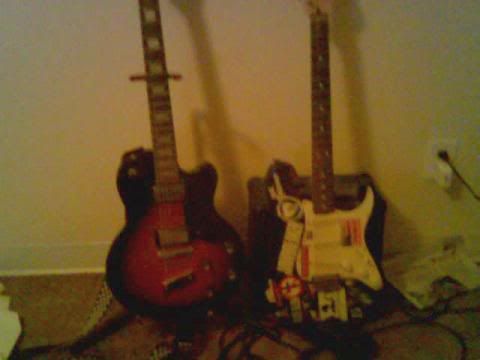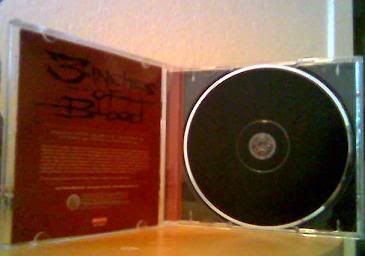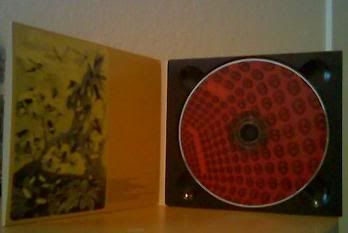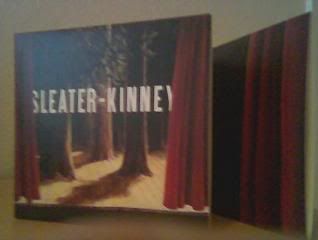
According to the Fender, their Standard Stratocasters are made with an alder body, maple neck, and rosewood fretboards (maple fretboards are also available). Maple and alder are fairly prominent North American trees, but Brazilian Rosewood is listed as an endangered species by the World Conservation Union. Consequently, guitar makers have switched from the Brazilian variety to more common varieties from India and Madagascar.
Some guitar makers are taking it upon themselves to find more environmentally-conscious ways of building fine instruments. Dave Maize makes acoustic guitars and basses from other woods that are rainforest-friendly and come from unorthodox places such as driftwood, as well as discarded woods from construction and even trees damaged by forest fires. According to his website, his instruments are being played by guitarists from such bands as U2 and Pearl Jam. I wish I could try out one of his guitars, but unfortunately they are only sold by order or from his shop in Oregon. However, you can listen to samples of his guitars and basses being played.
With all of the countless things we use wood and lumber for, guitars may seem like an insignificant portion of the total amount of trees being cut down every year, but like most things, it adds up over time. Besides, wouldn't you feel foolish singing a song about saving the environment if part of a rainforest had to be demolished to make your guitar?
NOTE: I attempted to find information about the woods used to make DeArmond guitars, but apparently the company is now defunct. Guess mine is a collector's item!






